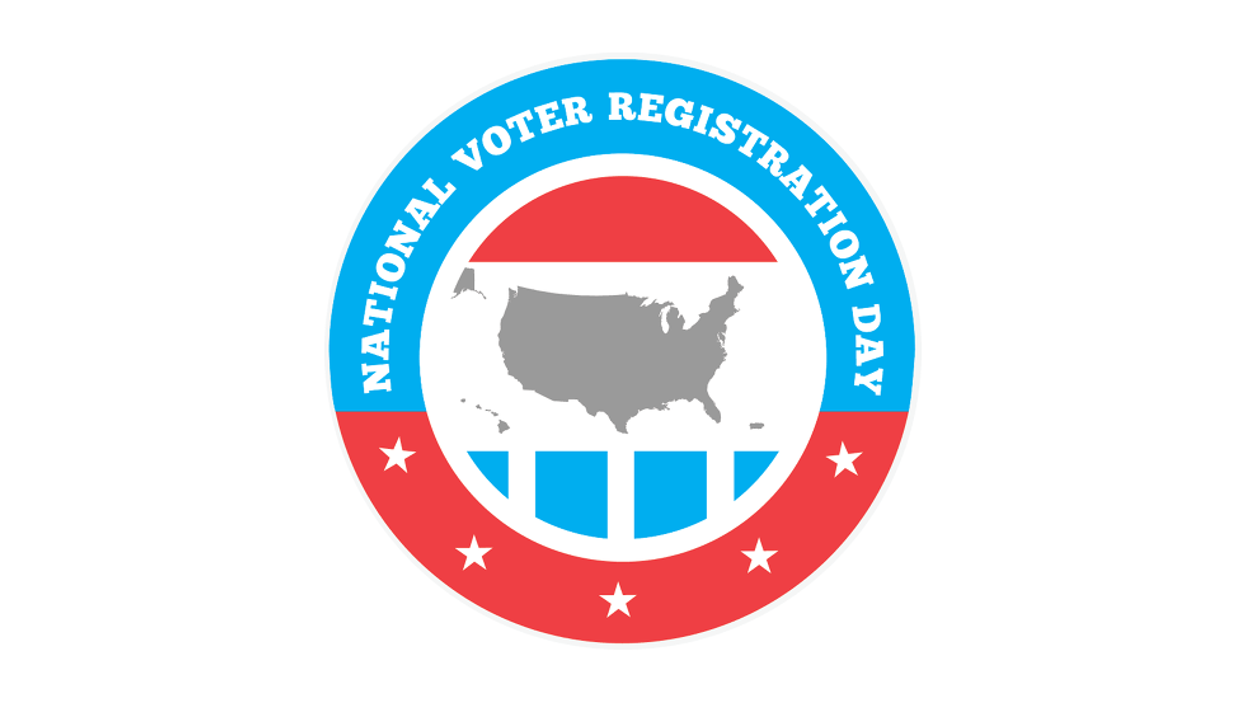Bhojwani is the founder and president of New American Leaders, a nonpartisan organization promoting political participation by first and second generation Americans.
In an era when rampant voter suppression, partisan gerrymandering and electoral corruption threaten our democracy, Tuesday's National Voter Registration Day offered an important call to action.
To protect our democracy from further erosion we will need to take back the White House and remove bad actors from office in 2020. A new math offers a path to those victories and it includes first-generation and second-generation immigrant voters — or "New Americans." They hold the key to swinging this election if they're inspired to vote in large numbers. National Voter Registration Day focused us on ensuring that all Americans who are eligible to vote have the opportunity to do so.
First, it reminded us that we need to level the playing field by bringing voter education and mobilization directly to the doorsteps of these communities. The bureaucracy of the voter registration process can be especially difficult for new Americans to navigate. Every year, millions are unable to vote because they miss registration deadlines, don't update their registration or aren't sure how to register. Real investment is required to educate and mobilize New American voters. In 2018, Georgia had record-breaking turnout because of efforts by groups like New Georgia Project to leave no voter behind. Among Latinos, for example, voter turnout more than doubled.
The second benefit of National Voter Registration Day was activating new American organizers and candidates on the state and local levels. They serve as trusted messengers and ambassadors who inspire immigrant and first-time voters to cast ballots. Their efforts are particularly important since both major political parties largely ignore immigrant communities, especially Asian-Americans and Pacific Islanders. Nearly 40 percent of them do not identify as Democrats or Republicans, and those votes are literally up for grabs. Engaging these ignored voters can pave the path to victory in 2020, but few presidential candidates seem interested in prioritizing it.
Case in point: At the annual Islamic Society of North America convention over Labor Day weekend — the largest gathering of American Muslims — the first-ever presidential forum in this budding community saw participation from just two of the Democrats, Bernie Sanders and Julián Castro. At the only Asian-American and Pacific Islander forum for presidential candidates, the AAPI Progressive Democratic Presidential Forum, low-polling candidates Tulsi Gabbard, Andrew Yang and Tom Steyer were the only participants.
How can campaigns connect with first-time or low-propensity voters? One way is to engage with diverse elected officials and candidates who share the lived experience of potential voters. A second and critical strategy is to continue hiring local and diverse staff members from new American communities and communities of color. Mobilizing new American voters in these ways can change the equation of elections.
National Voter Registration Day has been observed since 2012, but the problem it addresses is decades old, and it's a problem that should never exist in the first place. Low rates of registration and turnout should be a non-issue in one of the world's largest democracies. In Australia, where voting is mandatory, voter turnout is at 96%, compared to 56% in the United States (in 2016).
On paper, voting in the United States is a right, not a privilege. In practice, who can and does vote varies by race and geographic location, among other factors. Currently voting is reserved for those with control over their work schedules and easy access to polling locations.
Presidential candidates must see National Voter Registration Day for what it is: just one tool to build an inclusive democracy. Any candidate who wants to win the White House and win the trust of the emerging New American majority must make democracy reform a top-tier priority, not just a talking point. Long-term solutions would include making Election Day a paid holiday; creating abundant polling locations including options like the vote centers in Larimer County, Colo.; and overturning regressive voter ID laws such as Georgia's exact match law, which disproportionately affected African-Americans and other voters of color last year.
If we want to recognize the full promise and potential of American democracy, then we must continue working on the principles of National Voter Registration Day. It is just one milestone on our journey toward reshaping our democracy to work for "we the people."



















Trump & Hegseth gave Mark Kelly a huge 2028 gift